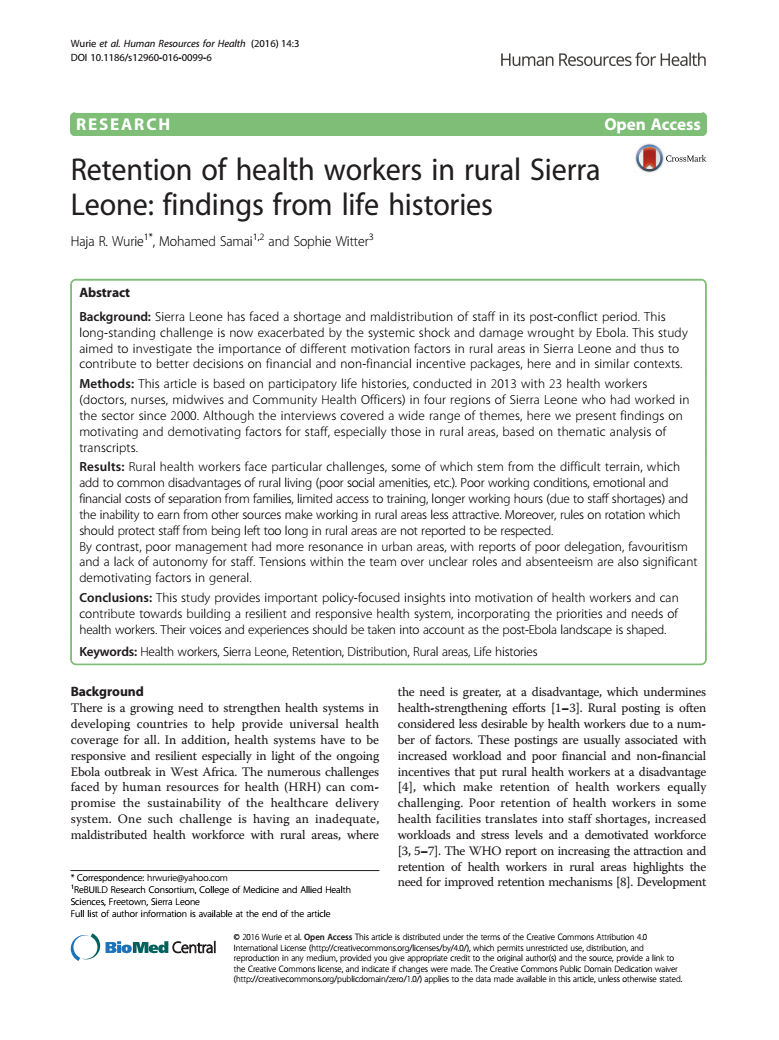Retention of health workers in rural Sierra Leone: findings from life histories
 Wurie et al. Human Resources for Health (2016) 14:3 DOI 10.1186/s12960-016-0099-6
Wurie et al. Human Resources for Health (2016) 14:3 DOI 10.1186/s12960-016-0099-6
Haja R. Wurie, Mohamed Samai and Sophie Witter
This article, published in Human Resources for Health, reports the findings from ReBUILD’s qualitative work in Sierra Leone on health worker incentives.
Download the full article here.
Abstract Background: Sierra Leone has faced a shortage and maldistribution of staff in its post-conflict period. This long-standing challenge is now exacerbated by the systemic shock and damage wrought by Ebola. This study aimed to investigate the importance of different motivation factors in rural areas in Sierra Leone and thus to contribute to better decisions on financial and non-financial incentive packages, here and in similar contexts.
Methods: This article is based on participatory life histories, conducted in 2013 with 23 health workers (doctors, nurses, midwives and Community Health Officers) in four regions of Sierra Leone who had worked in the sector since 2000. Although the interviews covered a wide range of themes, here we present findings on motivating and demotivating factors for staff, especially those in rural areas, based on thematic analysis of transcripts.
Results: Rural health workers face particular challenges, some of which stem from the difficult terrain, which add to common disadvantages of rural living (poor social amenities, etc.). Poor working conditions, emotional and financial costs of separation from families, limited access to training, longer working hours (due to staff shortages) and the inability to earn from other sources make working in rural areas less attractive. Moreover, rules on rotation which should protect staff from being left too long in rural areas are not reported to be respected. By contrast, poor management had more resonance in urban areas, with reports of poor delegation, favouritism and a lack of autonomy for staff. Tensions within the team over unclear roles and absenteeism are also significant demotivating factors in general.
Conclusions: This study provides important policy-focused insights into motivation of health workers and can contribute towards building a resilient and responsive health system, incorporating the priorities and needs of health workers. Their voices and experiences should be taken into account as the post-Ebola landscape is shaped.
This resource was produced by the ReBUILD programme – the precursor of ReBUILD for Resilience.